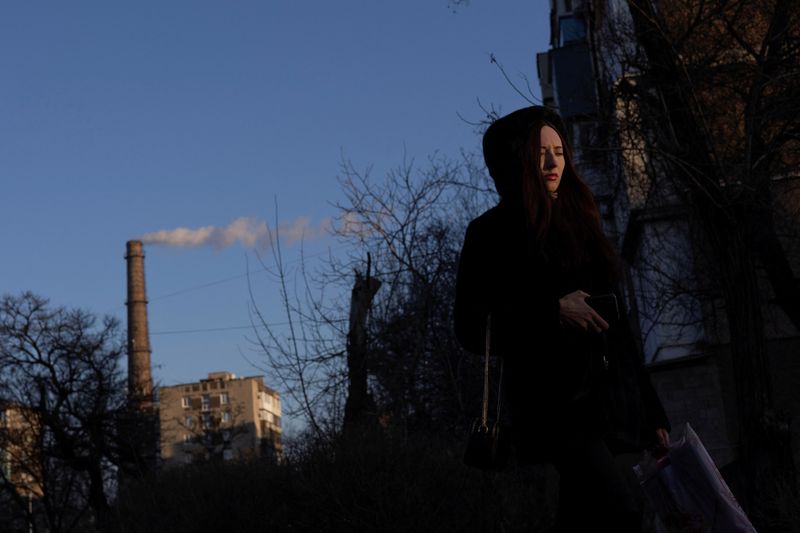(Reuters) -JPMorgan analysts downgraded Russian equities to “neutral” from “overweight” on Tuesday, after Moscow sent troops to two breakaway regions in eastern Ukraine after recognising them as independent.
President Vladimir Putin’s announcement on Monday drew international condemnation. The United States and its European allies are poised to announce sanctions. Britain also imposed sanctions and German chancellor Olaf Scholz halted the certification of the Russia-led Nord Stream 2 gas pipeline.
JPM analysts expect further declines in the Russian stock market in the near term.
Russia’s dollar-denominated RTS share index hit its lowest since 2020 in early trading and was down 1.7% at 1316 GMT, while the rouble-based MOEX index was down 1.8%%.
“With uncertainty as high/valuations as low as we can remember and a declining investor appetite to accept Russian risk – either long or short – we move to N (neutral) on Russian within our CEEMEA allocation,” analyst Elena Jouronova said in a note.
A fall in dividends poses further downside risk. Russia may not pay out to foreign shareholders when U.S. policy is explicitly designed to isolate Russia from markets, JPM added.
The crisis in Ukraine is changing from a background risk to “a significant market driver in coming weeks”, JPMorgan analysts wrote in a separate note on Tuesday.
“For the market, the possibility of defusing and de-escalating the crisis without action has been taken off the table.”
As investors become more risk-averse, they will deleverage out of the most crowded positions, JPM said.
Fixed income in emerging markets will be affected by a move higher in energy prices and by some emerging market central banks taking a more dovish stance in response to the uncertainty and hit to growth caused by the tensions, the analysts said.
(Reporting by Tanvi Mehta in Bengaluru and Elizabeth Howcroft in London; Editing by Sherry Jacob-Phillips and Alison Williams)






















